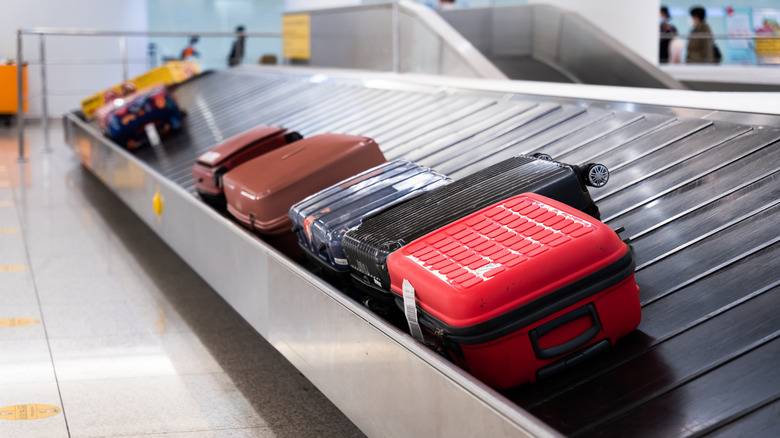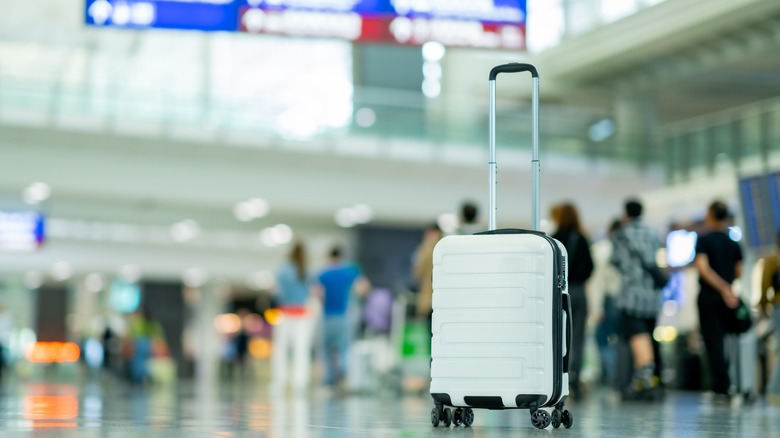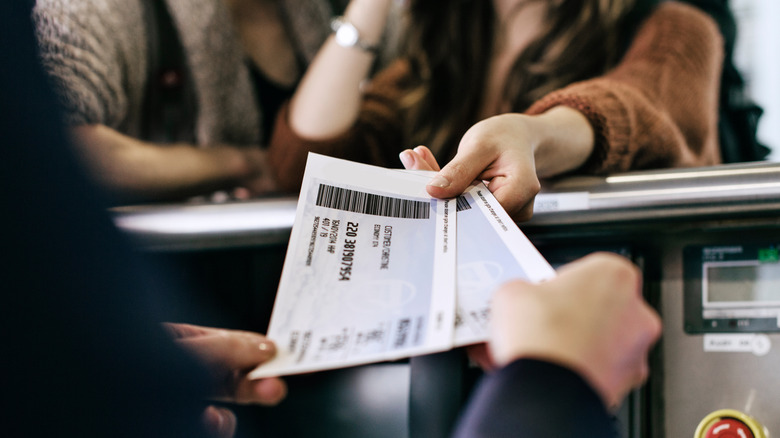How Common Really Is It For An Airline To Lose Your Luggage? Here's What We Know
Imagine this: You've just returned from your dream vacation, brimming with unforgettable memories. As you wait by the luggage carousel, watching bag after bag tumble onto the conveyor, you realize yours isn't coming. Frustration sets in as you contemplate the potential loss of souvenirs, clothes, and your timeless and irreplaceable personal items. Or worse, disaster strikes and the conveyor belt has damaged your luggage!
While lost luggage is a traveler's worst nightmare, the good news is that it's relatively rare. According to recent data, less than 1% of checked bags are mishandles domestically. Most cases involve delayed bags rather than permanent loss or theft. Certain airlines are also more reliable than others according to an Air Travel Consumer Report released by the U.S. Department of Transportation. Allegiant Air for example, which operates in over 100 destinations in North America, consistently ranks as one of the best, losing only 0.002% of checked luggage. Southwest Airlines on the other hand, which operates about 4,000 flights daily and is the largest carrier of travel within the United States, has a mishandling rating of 0.45%.
Other carriers, especially those with complex international routes, report higher rates of baggage issues but on average, the report shows that only 0.58% of bags were mishandled in 2023. Quite a small percentage when you consider the sheer volume of travelers going in and out of airports daily.
Why do airlines lose luggage?
The reasons behind lost or delayed luggage are often linked to logistics and human error. One common issue is late check-ins. When passengers arrive at the airport just before boarding, their luggage may not have enough time to pass through the necessary handling processes and get onto the plane.
Short layovers between connecting flights are another significant factor. Even if passengers sprint between gates, their bags don't have the same advantage. Luggage must go through a sequence of required steps, often performed manually by humans, to move between flights. Tight schedules increase the likelihood of a bag being left behind or rerouted incorrectly.
Occasionally, misprinted or damaged baggage tags contribute to problems. If the tag becomes unreadable or detached, airport staff many not know where to send the luggage, resulting in delay or mishandling. Lastly, passenger mistakes, like accidentally picking up the wrong bag, can also lead to mishaps — especially since many suitcases look very similar.
Tips to avoid losing your luggage
While travelers can't control every aspect of luggage handling, several strategies can help minimize the risk of losing bags. Clearly labeling your luggage is a crucial first step. Use sturdy tags that include your name, phone number, and destination address, ensuring they are legibly printed. It's also wise to remove any old tags from previous trips to prevent confusion. Adding distinct features, such as colorful ribbons or unique stickers, can make your bag easily identifiable at baggage claim.
Pack essentials and a change of clothes in your carry-on or use these simple tips to make traveling with only a carry-on easier. And be sure to avoid this mistake many travelers make when storing their carry-on luggage. This way, even if your checked luggage is delayed, you'll still have access to much needed items. By choosing flights with sufficient layover times — ideally at least an hour between connections — can significantly reduce the chances of mishandling. Tight schedules leave little room for error, while direct flights, though often more expensive, eliminate this risk all together.
Carefully check your luggage upon retrieval. Verify that the suitcase you're taking is indeed yours by matching the tag. This simple habit can prevent mix-ups with other travelers. Whenever possible, opt for airlines with strong records of reliability. Carriers like Allegiant Air or Endeavor Air boast some of the lowest rates of mishandled bags, offering travelers greater confidence in their baggage handling processes. If you are one of the unlucky ones who does lose a bag, immediately contact the airline to report the missing luggage at their baggage claim office. Keep all related travel documents like baggage claim tickets and flight tickets to back up your claim. Hopefully it's resolved quickly and you return to resting in blissful memories of your trip.


